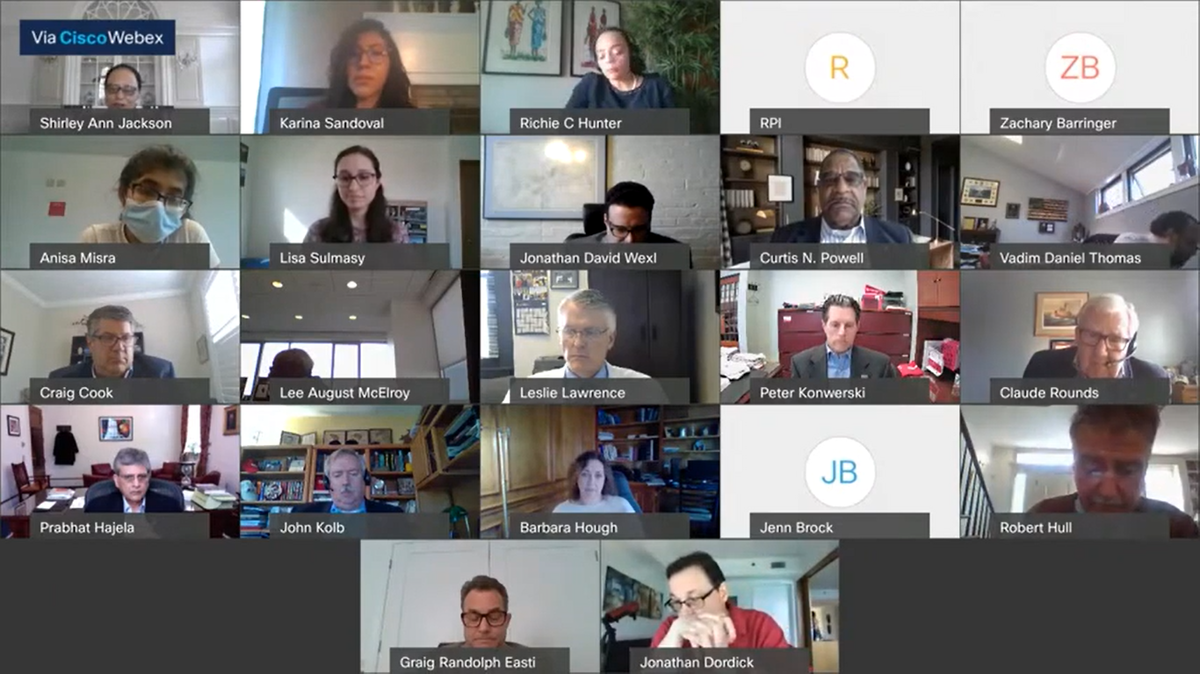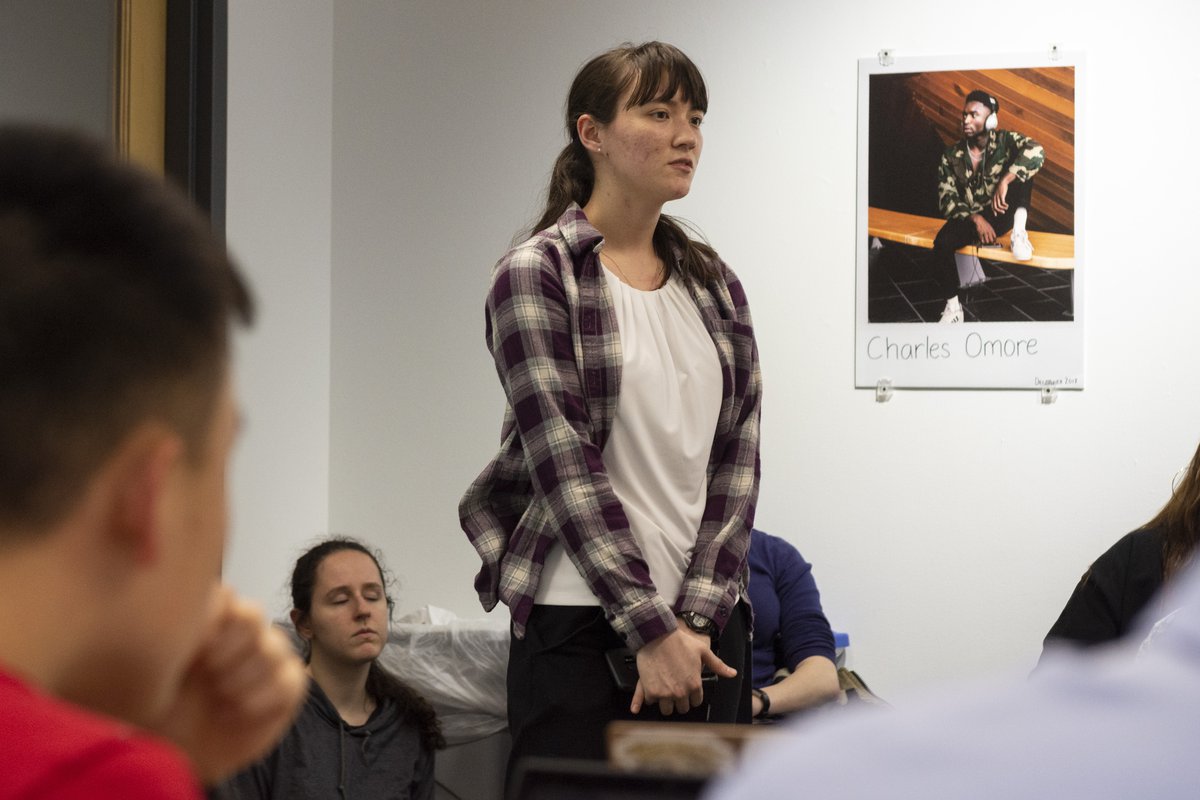Jackson discusses support for underrepresented students during Town Meeting

Rensselaer students and faculty members asked Institute President Shirley Ann Jackson and other administrators about plans for the Fall semester, advocacy for underrepresented students, and condemnation of the recent spike in anti-Asian hate crimes during the Spring Town Meeting on March 25. Dr. Jackson also announced intentions to hold commencement in-person and have the campus operate almost normally by the Fall semester.
Dr. Jackson started off the Spring Town Meeting condemning acts of hate against Asian-American and Pacific Islander populations, urging all members of marginalized groups in the Rensselaer community who do not feel safe to “come forward to Public Safety, the Dean of Students, to the Provost, to Human Resources, or directly to [her].” Vice President of Human Resources Curtis Powell also brought up the bystander training courses on Percipio to help RPI students combat discrimination.
Vice president of the Faculty Senate Professor Emily Liu asked about ways to support Asian community members directly, such as with directed bias training. “Please understand...that I can understand,” responded Dr. Jackson. “I may not know all the cultural nuances, but I know what it’s like to face hate,” Jackson continued.
Director of Public Safety Vadim Thomas added that Pubsafe has formed a close liaison with local law enforcement. Thomas further emphasized that RPI community members should not hesitate in reporting incidents to Public Safety, as they will be “aggressively addressed.”
Karina Sandoval ’22 asked about progress on administrative requests made by the Rensselaer Black and LatinX Student Coalition regarding “addressing the needs of the BIPOC community,” such as mental health resources, discrimination, and bias training. Dr. Jackson stated that she had seen the requests, and proposed that a group of students meet with her and Vice President of Student Life Peter Konwerski to discuss ways to better support underrepresented students.
Jackson also brought up a goal to enroll at least 75 incoming underrepresented minority students in the Bridge Scholars Program and potentially extend the I-PERSIST program beyond one semester. “If there are specific things we’re missing, I want you to tell me,” Jackson said. The Bridge Scholars Program allows incoming students to develop physics and calculus skills before their first semester begins, while I-PERSIST is a mentoring program for physics, calculus, and chemistry where students build subject-specific skills and transition to college life in their first semester.
The Director of Multicultural Programs position currently remains vacant, as noted by both Sandoval and Professor Liu, and only one person of color works as a counselor at RPI. In addition, students themselves primarily run many avenues of support for students of color, such as the Multicultural Lounge and various mentoring programs. Some efforts proposed by Jackson for more administrative support include hiring a more diverse faculty, particularly in student life, and to “develop more multicultural awareness” for the existing staff at RPI.
Dr. Jackson also commended the on-campus Rensselaer community for their cooperation in lowering the number of cases after the 17-day quarantine following Trigger Level 1 and announced that the administration would gradually make campus facilities available for student use during the remainder of this semester. The Institute also intends to allow athletes to begin training and conditioning and possibly allow them to enter Liberty-League tournaments, albeit late.
University-sponsored travel will still not occur during this semester. Commencement will be held on May 22 in-person.
The Fall semester is expected to be “fully in-person, assuming the public health situation allows for it,” and administrators are “planning toward having a more complete… Fall semester,” according to Jackson. If “labs are functioning at near-normal [levels],” then undergraduate research will most likely resume in the Fall.
The Institute has yet to announce any changes in campus life as a result of vaccinations, but Jackson expects that “if there is a greater degree of vaccination, then that allows [the Institute] to be more open.” However, community members should still follow physical distancing and mask usage. Executive Director of the Health Center Dr. Leslie Lawrence added that, until the ability of vaccines to prevent the spread of COVID-19 becomes better understood, the Institute will “continue to play it safe, and test everyone.”
According to Jackson, expenses related to COVID-19 will have cost the Institute $74 million by the end of the fiscal year in “lost revenue and unplanned expenses.” The Institute has projected $72 million in savings and plans to increase financial aid for students due to financial strains caused by the pandemic.

 Administration
Administration